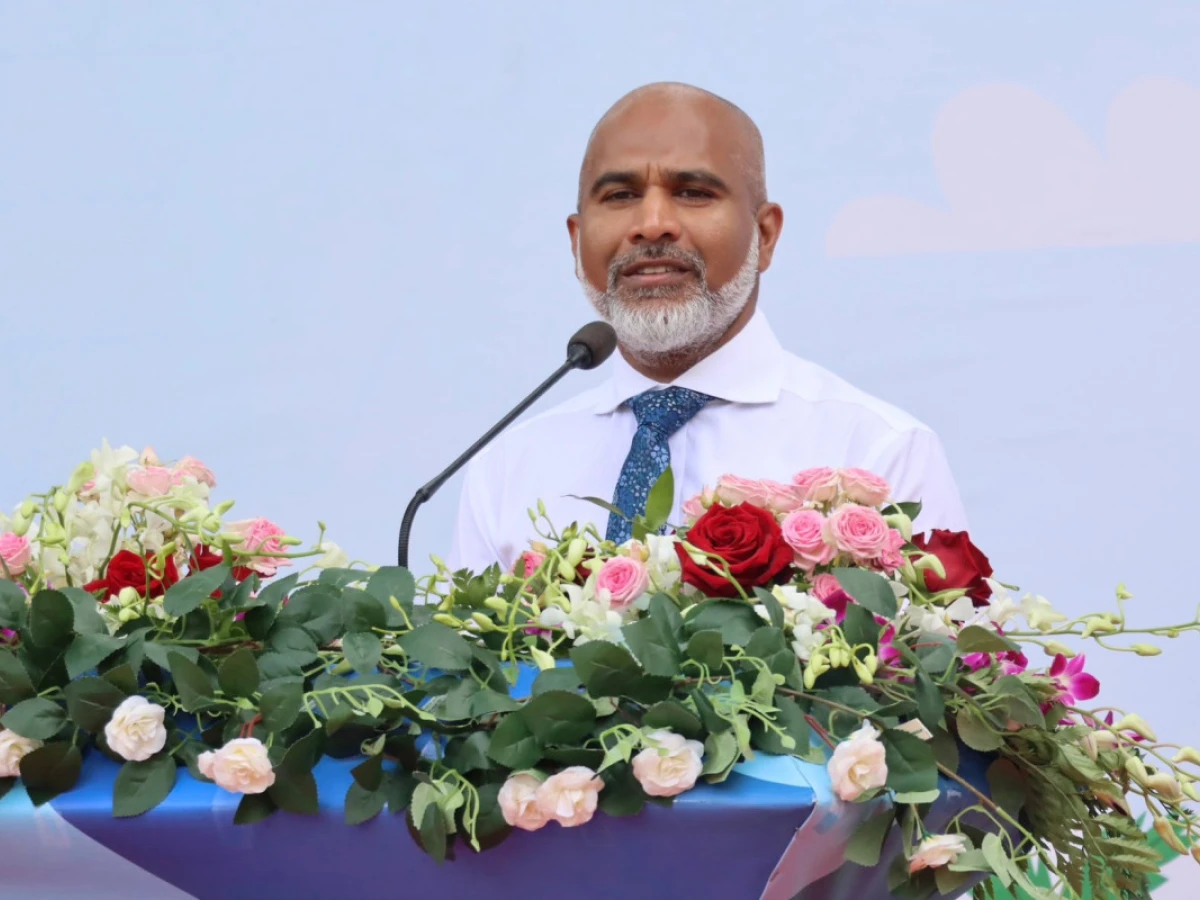
Minister hits back at criticism over 'cool school' comments
"A Google search can tell you the negative impact of increased heat on students' learning and behaviour,” Shafeeu said, making sure his point hit home.
Top Stories
By
Aishath Fareeha Abdulla
Education Minister Dr Ismail Shafeeu said on Sunday that he did not say that air conditioning school classrooms would stop bullying in schools, and that newspapers had reported his remarks in a way that distorted the meaning of what he had said.
The 'Cool School' project to air-condition all government schools was officially launched on Sunday. At a ceremony held in Maafushi, the minister said that students will not be bullied in 'cool schools' and in such schools, the cool environment will bring a positive change in the discipline and behaviour of the students and students will refrain from disruptive behaviour.
The minister said in a Facebook post on Sunday that the Cool School project is not only to cool classrooms but also to create a facilitating environment for learning and teaching.
According to the Minister, the project will:
-
ACs will be installed to reduce the hot temperature in the classrooms
-
Special priority will be given to installing solar panels to reduce electricity consumption in schools
-
Special activities will be conducted for the health of students, teachers and the entire school community
-
Schools will be transformed into peaceful environments and 'cool schools'
“There will be no bullying in cool schools. That's because bullying isn't cool. In such schools, everyone will work together for the betterment of the students. This is the essence of the cool school mention I made in my speech that day,' the minister said.
The minister also said that he had seen some newspapers writing that he had said there will be no bullying in schools once the schools were air conditioned, and that it was the journalist’s misinterpretation of what he had said that had raised such an issue in his remarks.
"It is sad to joke that AC can stop bullying or that snow is the solution to bullying. It is worse that even the country's vice presidential level officials have contributed to such talk without thinking about it," he said.
Shafeeu said he had noted from a study conducted in 2019 that the feeli-like classroom temperature in some schools in Maldives was about 37 degrees Celsius.
In addition to that, with the recent climate changes, the feel-like temperature has risen in recent years and months to over 40 degrees Celsius.
“This will have an adverse impact on the school environment,” Shafeeu said.
The minister pointed out that there was a lot of discussion on the changes in students' learning and behaviour due to heat at the World Education Forum in London held on May 19, 2024.
“Even if you are not an expert research fellow, a Google search can tell you the negative impact of increased heat on students' learning and behaviour,” Shafeeu said, making sure his point hit home this time.




